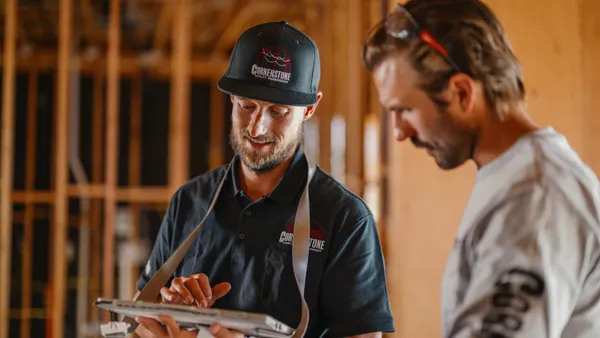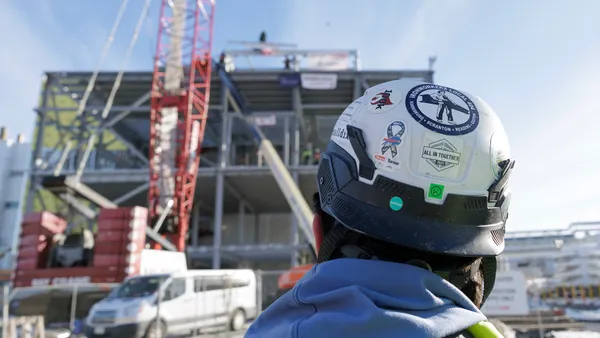Dive Brief:
- Serious Labs introduced an Aerial Virtual Reality Training Simulator, which combines the company's scissor lift and boom lift modules to provide an aerial operator training solution, reported ForConstructionPros.com.
- The scissor lift modules include 18 training scenarios on slab and diesel rough terrain scissor lifts while the articulating boom lift offers 16 scenarios. Metrics will provide feedback about the operator’s performance, the company said.
- The kit, which will be available globally in April for subscription, lease or rental, includes Serious Labs' motion base, a virtual reality headset, a safety cage, scissor lift controls and oculus touch controls that automatically calibrate the headset for each operator.
Dive Insight:
A new training facility in Reno, Nevada, also uses VR heavy equipment simulators in its operator training program. The 1,200-square-foot classroom will feature two large wheel loader simulator systems by Caterpillar. Operators will get the full VR experience and visibility in all directions via a three-monitor configuration.
Using technology such as this also helps recruit younger generations into the industry, and studies prove gamifying learning improves engagement and retention. Despite recognizing apps' importance, though, only 26% of construction companies use software or a mobile app for safety purposes.
Technology implementation often is naturally followed by automation, which can help ease the burden of not having enough workers. However, a joint report by the Midwest Economic Policy Institute and the Project for Middle Class Renewal at the University of Illinois Urbana-Champaign concluded automation could displace up to 2.7 million construction workers by 2057. The study's authors advocate for promoting education and pathways to transition workers into new roles that complement automation’s rise.
Autodesk CEO Andrew Anagnost encourages embracing automation and where it will lead the industry. "Instead of worrying about automation taking our jobs, let's have a conversation about where automation can take us," he said at Autodesk University last November. He does recognize there will be challenges along the way, however, which he believes can be overcome with adaptability, resiliency and community.
Magued Eldaief, CEO of BIM hardware and software technology company Prescient, anticipates technology playing a big role in the prefab market. "I would envision that we will see more automation and robotics at project sites to drive the digital thread into project execution with CAA (computer-aided assembly)," he told Construction Dive in February. "This would not only enhance site productivity but would also eliminate human safety concerns."













